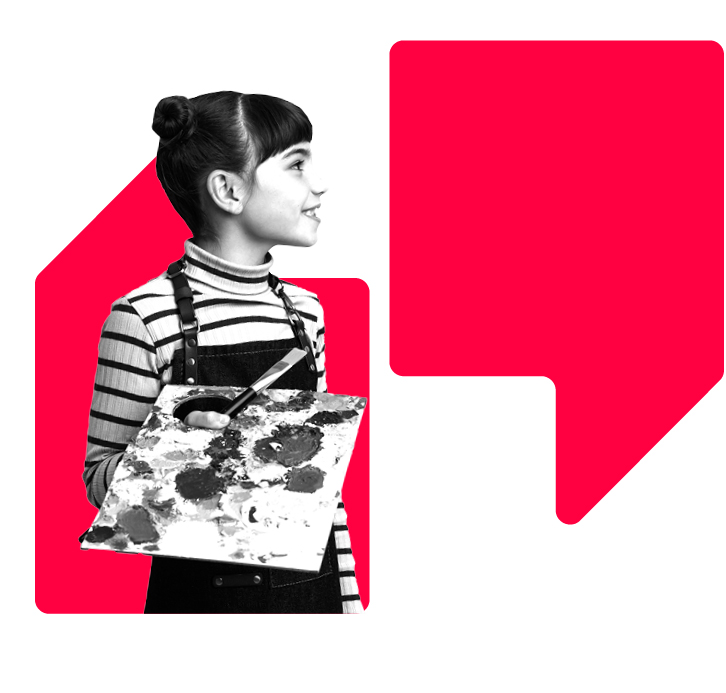Today we publish our first CLA annual Report Card, written by Baz Ramaiah, CLA Policy Associate and Head of Policy at the Centre for Education and Youth. CLA has regularly gathered data on arts GCSE and A-Level take up, and on arts teaching hours, but this is the first time that key arts education data (2010-2023) has been comprehensively gathered together in one place. We are expanding our reporting across five new key indicators to provide a detailed survey of children’s and young people’s access to the Arts through their schooling in England.
We now have a very clear view of what has been happening to Expressive Arts education in state schools over the past 14 years – since the introduction of the EBacc – and it is a stark picture of erosion and inequality. The Report Card makes clear that:
- There has been an overall decline of 42% in the number of Arts GCSE entries since 2010
- In 2009/10, 14% of all GCSE entries were in Arts subjects; by 2022/23 the figure had halved (7%)
- There are schools which no longer offer some Arts subjects at all at GCSE level: 42% of schools no longer enter any pupils for Music GCSE; 41% of schools no longer enter any pupils for Drama GCSE; and 84% enter no pupils for Dance GCSE
- There has been an overall 21% decrease in Arts entries at A-Level since 2010
- Falls in A-Level Arts take up are especially steep in Dance (56%), Music (43%) and Design & Technology (42%).
- Between 2011/12 and 2022/23, the fall in teaching hours for Arts subjects (excluding Dance, for which data was unavailable) was 21%
- There are 14% fewer Arts teachers than in 2010
- Between 2010/11 and 2022/23, the vacancy rate for Art & Design teachers has more than tripled; the rate for Music has increased by a multiple of six, and Drama has increased by a multiple of five. Teacher recruitment in Music has fallen by a staggering 56%
- The number of students studying for an undergraduate degree in Creative Arts and Design subjects has decreased by 6% since 2010
There is no available data on the number of Arts specialists in primary schools, or how many hours are spent on each national curriculum area, so the primary Arts picture remains unclear. We are calling for DfE to collect data on the number of Arts specialists in primary schools, and how many hours are spent on each national curriculum area in primary (it already collects this data for each secondary subject area).
Do share the Report Card with your colleagues. We hope that this concise and annual state-of-the-nation overview will be of use to all those working in education delivery and policy, and in the cultural sector. Our findings will be valuable for those building a case for support for their Arts education work. Importantly they will enable policy-makers in the next government to be clear-sighted in understanding the landscape as they address Arts education policy issues in their first year in office.
To address these findings, we are proposing a blueprint to rebuild and sustain a more equitable and inclusive arts-rich education.
Read our 2024 Report Card.
Read our one-page blueprint for an inclusive arts-rich education.
Read our detailed blueprint for the changes needed to build an inclusive arts-rich education.




